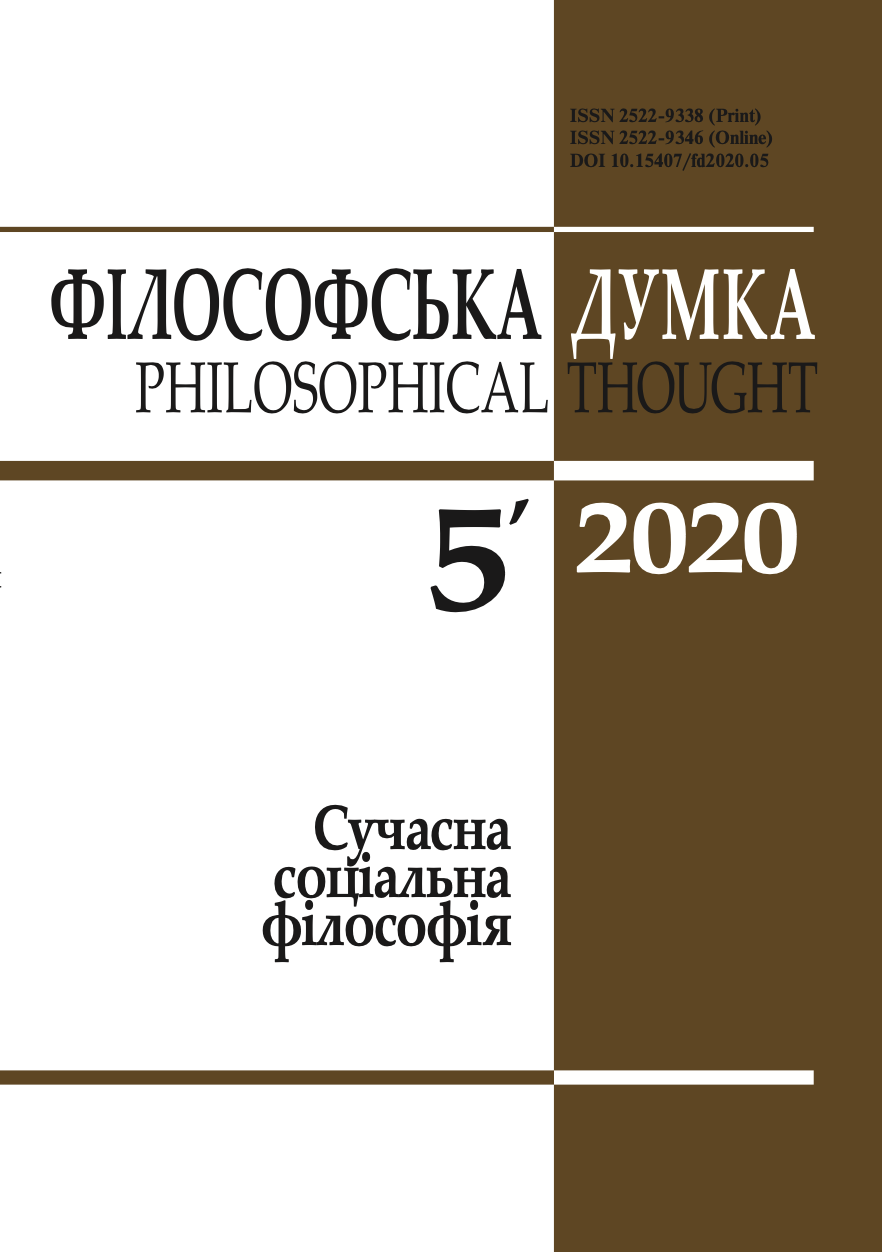THE MIND-BODY PROBLEM(S) IN DESCARTES’ “MEDITATIONS” AND HUSSERL’S “CRISIS” (Part 2)
DOI:
https://doi.org/10.15407/fd2020.05.117Keywords:
ontological (traditional) mind-body problem,, conceptual mind-body problem, transcendental phenomenology, the lived-body (der Leib), Descartes, HusserlAbstract
The main topic of this paper is the mind-body problem. The author analyzes it in the context of Hus- serlian phenomenology. The key texts for the analysis and interpretation are Descartes’ magnum opus “Meditations on the First Philosophy” and Husserl’ last work “The Crisis of European Sciences and Transcendental Phenomenology”. The author claims that already in Descartes’ text instead of one mind-body problem, one can find two: the ontological mind-body problem (mind-brain relation) and conceptual one (“mind” and “body” as concepts). In Descartes’ “Meditations”, the ontological level is explicit, while the conceptual level is implicit. In Husserl’s “Crisis”, on the other hand, the situation is different: the conceptual level of the problem (as the opposition between transcendental phenomenology and natural sciences) is explicit, while the ontological level is implicit. Nevertheless, it seems that Husserl has answers to both the “traditional” as well as the “conceptual” mind-body problems.
References
Chalmers, D.J. (1995). Facing up to the Problem of Consciousness. Journal of Consciousness Studies, 2 (3), 200-219.
Chalmers, D.J. (1996). The Conscious Mind: In Search of a Fundamental Theory. New York: Oxford University Press.
Chalmers, D.J. (Ed.) (2002). Philosophy of mind: classical and contemporary readings. Oxford: Oxford University Press.
Crane, T. (2000). The Origins of Qualia. In: T. Crane, S. Patterson (Eds.), History of Mind-Body Problem. London: Routledge.
Descartes, R. (1957). Meditationes de Prima Philosophia. In: Oeuvres de Descartes (vol. 7). Paris: Vrin.
Descartes, R. (2008). Meditations on First Philosophy. In: The Philosophical Writings of Descartes. Tr. by J. Cottingham, R. Stoothoff, D. Murgoch, A. Kenny (vol. II). Cambridge: Cambridge University Press.
Gallagher, S., Zahavi, D. (2013). The Phenomenological Mind. S.l.: Routledge.
https://doi.org/10.4324/9780203126752
Husserl, E. (1960). Cartesian Meditations. An Introduction to Phenomenology. Tr. by D. Cairns.The Hague: Martinus Nijhoff.
https://doi.org/10.1007/978-94-017-4952-7
Husserl, E. (1970). The Crisis of European Sciences and Transcendental Phenomenology. An Introduction to Phenomenological Philosophy. Tr. by D. Carr. Evanston: Northwestern University Press.
Husserl, E. (1976). Die Krisis der Europaischen Wissenschaften und die Transzendentale Phänomenologie. Eine Einleitung in die Phänomenologische Philosophie. Hrzg. von W. Biemel. In: E. Husserl, Gesammelte Werke (Bd. VI). Den Haag: Martinus Nijhoof.
https://doi.org/10.1007/978-94-010-1335-2
Husserl, E. (1991). Cartesianische Meditationen und Parisien Vorträge. In: E. Husserl, Gesammelte Werke (Bd. I). S.l.: Kluwer Academisc Publishers.
https://doi.org/10.1007/978-94-011-3029-5
Husserl, E. (1995). Ideen zu reinen Phänomenologie und Phänomenologischen Philosophie. In: E. Husserl, Gesammelte Werke (Bd. III/1, Buch 1). S.l: Kluwer Academic Publishers.
Husserl, E. (2012). Ideas: General Introduction to Pure Phenomenology. Tr. by W.R. Boyce Gibson. London, New York: Routledge.
https://doi.org/10.4324/9780203120330
Smith, D.W. (1995). Mind and Body. In: The Cambridge Companion to Husserl. Cambridge: Cambridge University Press.
https://doi.org/10.1017/CCOL0521430232
Smith, D.W. (2013). Husserl. 2 nd ed. S.l.: Routledge.
Downloads
-
PDF
Downloads: 238
Published
How to Cite
Issue
Section
License
Authors who publish with this journal agree to the following terms:
- Authors retain copyright and grant the journal right of first publication.
- Authors are able to enter into separate, additional contractual arrangements for the non-exclusive distribution of the journal's published version of the work (e.g., post it to an institutional repository or publish it in a book), with an acknowledgement of its initial publication in this journal.
- Authors are permitted and encouraged to post their work online (e.g., in institutional repositories or on their website) prior to and during the submission process, as it can lead to productive exchanges, as well as earlier and greater citation of published work (See The Effect of Open Access).


